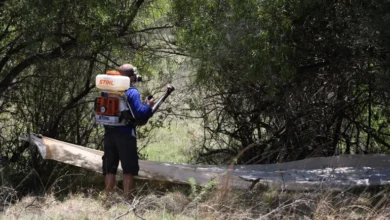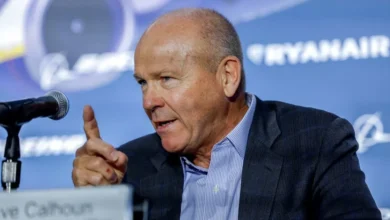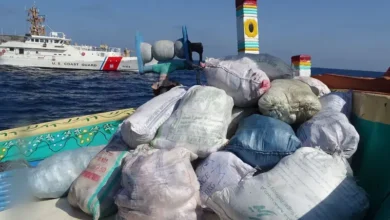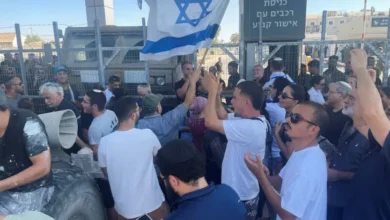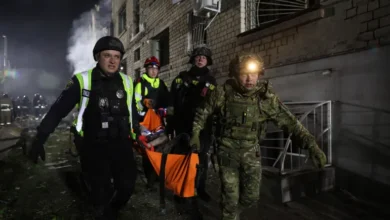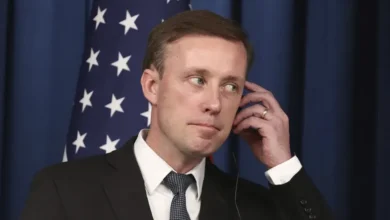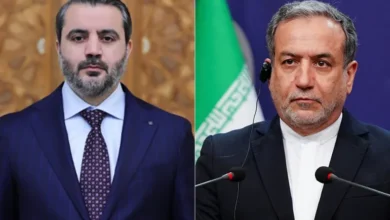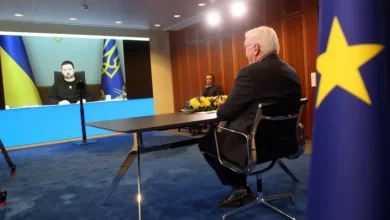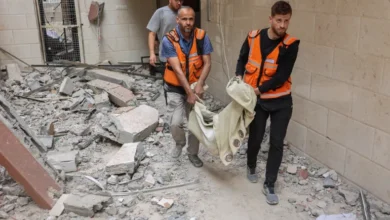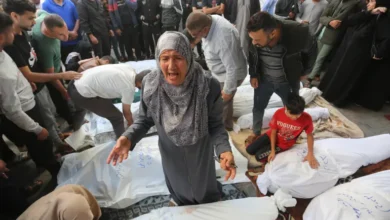Nigeria kills her sun: Death and vindication for Ken Saro-Wiwa, Ogoni Nine
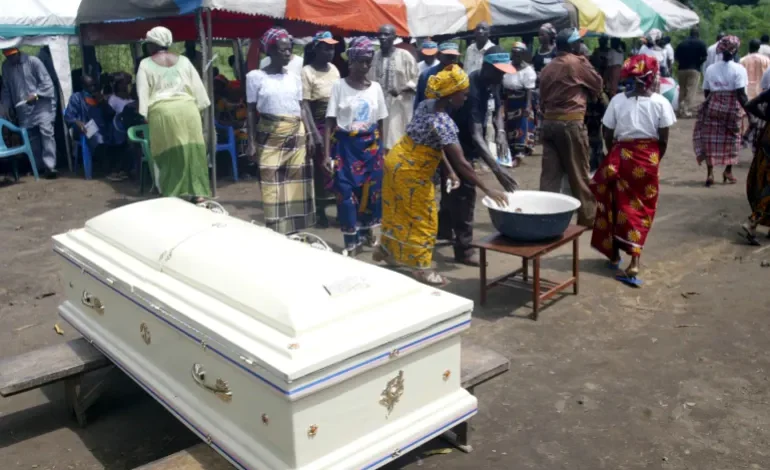
“Lord, take my soul, but the struggle continues,” the man said, before his body went limp. It swung gently from the makeshift gallows, hurriedly built a few days earlier. Before that morning, the prison had last enforced a death sentence 30 years earlier, during British rule.
It was November 10, 1995.For weeks, local activists from the small Ogoniland settlement in Nigeria’s lush Niger Delta region had been protesting against oil spills seeping into their farmland and the gas flares choking them. The Niger Delta, which produces the crude that earned Nigeria 80 percent of its foreign revenues, teemed with gun-carrying soldiers from the military dictatorship of the feared General Sani Abacha. They responded to the protests with force.
That day, the loudest Ogoni voice – renowned playwright and environmental activist Ken Saro-Wiwa – faced his fate. A week earlier, a military tribunal had declared his sentence. And just the day before, five executioners tasked with carrying it out had flown in from the northern city of Sokoto.
At 5am that morning, Saro-Wiwa and the eight other Ogoni activists accused alongside him of murder were moved from the army camp where they had been held to the prison grounds in Port Harcourt, the regional hub a few hours drive from Ogoniland. There, they were herded into a room and shackled. Then, one after the other, they were led out to the gallows. Saro-Wiwa went first.
It took five attempts to kill him. After one failed tug, the activist cried out in frustration: “Why are you people treating me like this? What kind of country is this?”On the final attempt, the gallows finally functioned as they were supposed to. By 3:15pm, all nine men had been executed. Their bodies were placed in coffins, loaded into vehicles and escorted by armed guards to the public cemetery. On the streets, thousands of horrified people watched the procession as soldiers fired tear gas into the air to quell any thoughts of rebellion. No relatives of the nine men were allowed into the cemetery. There were no dignified burials, no parting words from loved ones.
Thirty years later, on June 12 this year, Nigeria’s Democracy Day, President Bola Ahmed Tinubu pardoned Saro-Wiwa and the others – the Ogoni Nine as they had become known. He went on to call them heroes and awarded them prestigious national titles.
For Saro-Wiwa’s daughter Noo Saro-Wiwa, who is now aged 49, and other relatives of the executed men, the pardons were moving but insufficient. In Ogoniland, it reopened old wounds that remained as deep as when they were first inflicted all those years ago.
Saro Wiwa, accidental environmental activist
Before his death at age 54, Saro-Wiwa wanted to be known as a great writer.A bundle of energy, he dabbled in many things, but books were his true love. More than two dozen books, poems and essays bore his name. His radio dramas and TV plays were wildly successful, particularly one that mocked the corrupt Nigerian elite, which took over after independence in 1960. In the short story Africa Kills Her Sun, Saro-Wiwa eerily warned of his killing: A man condemned to death pens a long letter to his lover, Zole, on the eve of his execution, telling her not to grieve.
Saro-Wiwa’s execution made him a martyr for the Ogoni people – the man whose death drew international attention to their plight.
In 1958, when Nigeria discovered oil in the southern Niger Delta, of which Ogoniland is a part, a 17-year-old Saro-Wiwa wrote letters to the government and oil companies questioning how delta communities would benefit from oil dollars. Later on, his essays highlighted how Ogoniland still lacked infrastructure – roads, electricity, water – despite the oil.
In October 1990, Saro-Wiwa led the Movement for the Survival of the Ogoni People (MOSOP), which he cofounded, to present the Ogoni Bill of Rights to the Nigerian government. In it, the Ogoni people denounced the dominance of the majority tribes (Hausa, Yoruba and Igbo) and the sidelining of minorities like the Ogoni. They called for political autonomy and direct control of oil profits, saying:“Thirty years of Nigerian independence has done no more than outline the wretched quality of the leadership of the Nigerian majority ethnic groups and their cruelty as they have plunged the nation into ethnic strife, carnage, war, dictatorship, retrogression and the greatest waste of national resources ever witnessed in world history, turning generations of Nigerians, born and unborn into perpetual debtors.”
It marked Saro-Wiwa as a thorn in the side of the military dictators, and from 1992 to 1993, he was arrested without charge several times. Still, he continued to condemn the slow death he said Ogonis were sentenced to.
“I accuse the oil companies of practising genocide against the Ogoni,” he wrote in one article. The Nigerian government, he said, was complicit.
Saro-Wiwa’s fervour took hold in Ogoniland. About 300,000 Ogonis, out of a population of half a million, marched with him in January 1993 to peacefully protest against the Nigerian government and Shell, the oil company that they said bore particular responsibility for the oil spills in their part of the delta.
It was one of the largest mass demonstrations Nigeria had ever seen at the time. Protesters carried signs with messages like: “Assassins, go home.” The protests were so large that the world began to notice the Ogonis and the slight, articulate man speaking for them. Soon, he was speaking at the United Nations, presenting the Ogonis’ case there. Environmental rights groups like Greenpeace noted and supported his activism.
By the end of that year, riots were breaking out, and angry protesters had destroyed oil pipelines worth billions of dollars. Shell was forced to suspend operations. The government promptly deployed a special task force to suppress what is now known as the Ogoni Rebellion. Soldiers brutally put down protests, carried out extrajudicial killings, and raped and tortured scores of people, according to reports by Amnesty International.
In-fighting and mob actions in Ogoniland
By 1994 and with soldiers still in Ogoniland, tensions were running high. Splits within the MOSOP leadership were also emerging with one side, led by Saro-Wiwa, calling for a stronger stance against the government and another preaching pacifism.
Edward Kobani was a childhood friend of Saro-Wiwa’s. He was also a pacifist who opposed his friend’s mobilisation of young people in rallies that rang with angry rhetoric. His stance against violence upturned their relationship. More broadly, the mood in the region was turning against the pacifists, who were increasingly seen as sellouts colluding with the military regime and Shell although there is no evidence they were working with either.
On May 21, 1994, word spread that some MOSOP leaders had gathered for a meeting at the chief’s palace in Ogoniland’s Gokana district but soldiers had blocked Saro-Wiwa from entering the area. Incensed, rioters marched to the meeting point and attacked those they could lay their hands on. Four of them – Kobani, Alfred Badey, and the brothers Samuel and Theophilus Orage, who were Saro-Wiwa’s in-laws – were clubbed with everything from broken bottles to sharpened rakes. Then they were set on fire.The Nigerian military immediately accused Saro-Wiwa of inciting the killings and arrested him the next day. At a news conference, the military administrator of Rivers State, which Ogoniland is part of, declared MOSOP a “terror group” and Saro Wiwa, a “dictator who has … no room for dissenting views”. Eight other MOSOP leaders were arrested: Nordu Eawo, Saturday Dobee, John Kpuine, Paul Levera, Felix Nuate, Daniel Gbooko, Barinem Kiobel and Baribor Bera.
